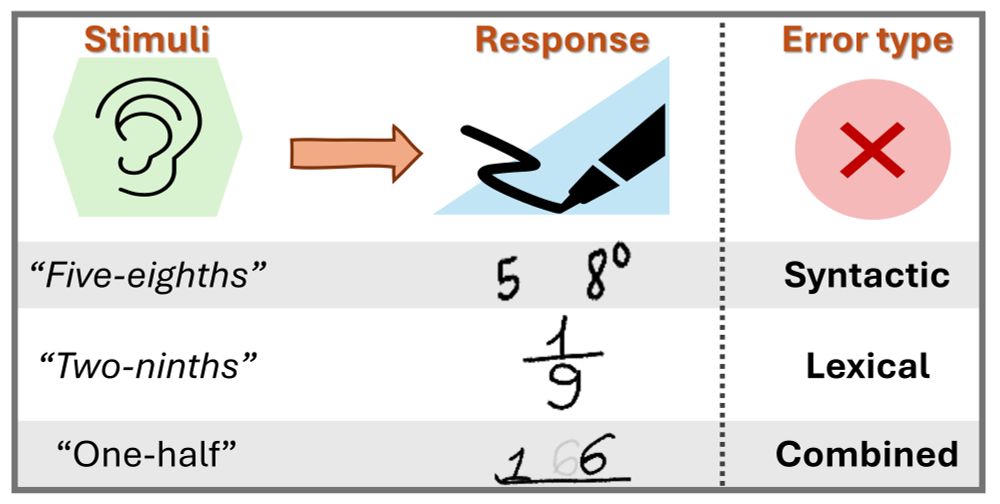bellastarlingalves.com
Questions for future research: How does fraction transcoding develop? When do kids stop making syntactic and lexical errors?
I loved doing this study: working with adults with low schooling was a gift. I learned a lot (about life, gratitude, and fractions) from them!
doi.org/10.5964/jnc....
Questions for future research: How does fraction transcoding develop? When do kids stop making syntactic and lexical errors?
I loved doing this study: working with adults with low schooling was a gift. I learned a lot (about life, gratitude, and fractions) from them!
doi.org/10.5964/jnc....
We also tested 2nd graders (since, currently, fraction instruction in Brazil starts in the 3rd grade). They were not able to write any fraction. Their errors fell into the same types.
These results suggest that informal experiences (over time) may support learning fraction transcoding.
We also tested 2nd graders (since, currently, fraction instruction in Brazil starts in the 3rd grade). They were not able to write any fraction. Their errors fell into the same types.
These results suggest that informal experiences (over time) may support learning fraction transcoding.
We tested 37 adults with low schooling (~3.5y). They heard fraction names and wrote them as numbers. About 50% of them had high accuracy, and 50% failed the task.
Errors fell into three types: syntactic (wrong notation), lexical (wrong digits), and combined (wrong digits and notation).

We tested 37 adults with low schooling (~3.5y). They heard fraction names and wrote them as numbers. About 50% of them had high accuracy, and 50% failed the task.
Errors fell into three types: syntactic (wrong notation), lexical (wrong digits), and combined (wrong digits and notation).

